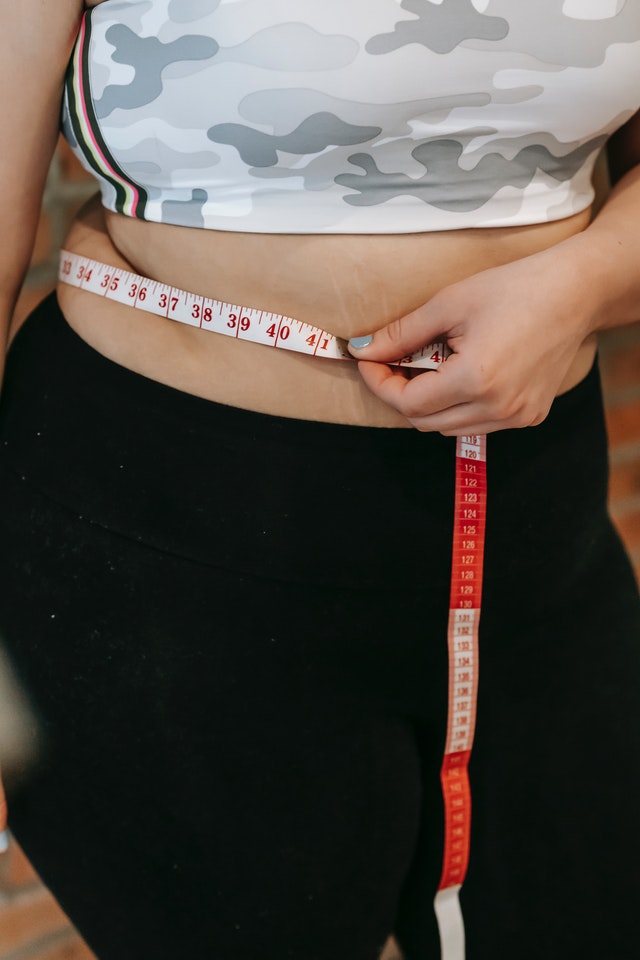Posts Tagged ‘diabetic symptoms’

What Are Common Diabetic Symptoms?
Diabetes affects up to 10% of the American population, according to the CDC. It is on the rise, with at least 1.5 million cases diagnosed yearly. Sadly, 1 in every 5 people is unaware they have the disease in the United States. Below shall be discussed the different diabetic symptoms.
The Negative Effects of High Blood Sugar Levels to the Body
The eyes
Diabetes increases your chances of experiencing dangerous vision problems that could lead to blindness. Some of these issues include:
- Glaucoma: Damages the nerve connecting your eye to the brain, leading to serious vision problems.
- Cataracts: The lens of your eye gets affected and becomes cloudy
- Retinopathy: The retina at the back of your eye changes.
The heart
Your heart’s nerves and blood vessels are at risk of damage after experiencing high blood sugar for a prolonged period. This increases the risk of heart diseases, including heart failure, stroke, and heart attacks.
The risk increases even more when you suffer from high cholesterol levels.
The kidneys
Diabetes affects the functioning of your kidney’s blood vessels. After a while, they may even stop working, leading to kidney failure.
The feet
With high blood sugar, blood flow to your feet is negatively affected. This leads to nerve damage which can cause sores, scrapes, and cuts not to heal in good time. With nerve damage, your feet may get injured without your knowledge leading to infections.
Sometimes, the infections get worse, and one may need an amputation.
The nerves
High blood sugar causes diabetic neuropathy (nerve damage). The side effects include pain, numbness, and tingling sensations, primarily in your feet.
The skin
Your skin becomes weak when you have diabetes. Scaly patches, yeast infections, and itching are some issues you may experience on your skin.
Erectile dysfunction
Since high blood sugar affects blood flow and nerves in the body, it can get complicated for a man to maintain an erection. Men with diabetes may experience a hard sex life.
Is it Possible for You to Tell if You Have Diabetes?
Well, yes and no, depending on the type you have. Warning signs for type 2 diabetes are quite subtle and can go undetected until one starts experiencing long-term effects. For type 1 diabetes, on the other hand, the signs appear in less than a month and are much more aggressive.
Early symptoms are a result of higher than normal glucose levels.
Diabetes Warning Signs / Diabetic Symptoms
Early signs of diabetes are quite similar for both type 1 and type 2, and they include:
1. Feeling thirsty constantly and peeing more often than usual – Diabetic Symptoms
Normally, humans pee up to 7 times a day. However, with diabetes, the frequency increases. Our bodies reabsorb glucose from the kidneys, but high blood sugar makes it hard for the necessary amount to be reabsorbed.
This leads to the production of more urine, which requires fluid from your body. As a result, you pee more often than usual, and because of passing that large amount of liquid, you get thirsty more often than average.
Interestingly the more liquids you intake, the more you pee.
2. Blurred vision – Diabetic Symptoms
The lenses of your eyes may swell up due to changes in body fluid levels when you have diabetes. This leads to poor vision because the shapes of your eyes change.
3. Hunger and fatigue – Diabetic Symptoms
For energy, the body converts the food you eat into glucose. However, you need insulin to absorb the converted glucose into your body cells. With diabetes, your body may become insulin resistant or produce it in fewer quantities.
This leads to fatigue and feeling hungry more than usual.
4. Itchy skin and dry mouth – Diabetic Symptoms
With diabetes, you lose so much fluid from your body through urination. The body needs this fluid to keep your skin and mouth hydrated. Without it, your skin becomes itchy while your mouth experiences dryness.
Type 1 Diabetes Symptoms
- Frequent nausea and vomiting
Our bodies burn fat and produce ketones. When you have type 1 diabetes, the ketone levels produced are higher than expected, and they can lead to a dangerous condition known as diabetic ketoacidosis.
High ketone levels make you feel sick in the stomach, causing you to vomit and feel nausea more often than normal.
- Unexpected weight loss
Since the body fails to absorb as much glucose as needed, it burns fats and muscles for energy. This will cause you to lose weight rapidly without even changing your diet. Taking foods high in trans fatty acids is advised to boost your health.
Type 2 Diabetes Symptoms
Type two diabetes symptoms take some time to show. These symptoms occur due to high glucose levels in your body for a prolonged period, and they include:
- Numbness or pain in your legs and feet
These may occur due to nerve damage caused by the disease.
- Persistent yeast infection in different parts of the body
Men and women with type 2 diabetes experience yeast infections in parts of the body where it is warm, and the skin folds under the breasts, between the toes and fingers, and around the sex organs.
This is because yeast feeds on glucose, and these areas have plenty of glucose.
- Sores and cuts begin to heal slowly
High blood sugar levels affect blood flow and also cause nerve damage. Because of these, your sores and cuts start to heal slower than before.
What are Gestational Diabetic Symptoms?
When pregnant, you may experience no signs of high blood sugar levels. However, you may notice that you urinate more frequently and get thirsty often.
How to Tell you are Experiencing Diabetes Complications
Warning signs of type 2 diabetes include:
- Impaired vision
- Erectile dysfunction
- Cuts and sores heal slower
- Itchiness, especially around the sex organs
- Recurring yeast infections
- Your skin may appear darker or velvety around the neck, groin, and armpits. This condition is known as acanthosis nigricans
- You may begin to gain weight
What is Hypoglycemia?
Also known as low blood sugar, hypoglycemia occurs when your glucose and sugar levels in the blood are too low to produce energy. Some signs include:
- Trembling
- Nervousness
- Confusion
- Impatience and crankiness
- Dizziness
- Frequent hunger
- Always feeling sleepy
- Recurring fatigue
- Feeling cold, clammy, or sweating more than usual
- Numbness or tingling sensations around your cheeks, tongue, and lips
With hypoglycemia, you may notice these few changes in your body:
- Problems with body coordination
- Repeated seizures
- Your skin gets pale
- A faster heartbeat rate
- Recurring headaches
- Blurred vision
- Unusual nightmares and crying in your sleep
What is Hyperglycemia?
The medical term for hyperglycemia (high blood sugar) is hyperosmolar hyperglycemic nonketotic syndrome (HHNS). This condition has many warning signs, including those we have listed for diabetes, and they are:
- Frequent urination
- Persistent hunger
- Feeling thirsty frequently
- Blurred vision
- Fatigue
- Sugar in the urine
- Blurred vision
- Tingling sensations or numbness in the feet
- Skin and vaginal infections
- Unexpected weight loss
- Slow-healing cuts and sores
- Blood glucose levels that are over 180 mg/dl
Hyperglycemia is a severe condition in either type of diabetes (more common in type 2) which can lead to diabetic coma and sometimes death. When your blood sugar levels skyrocket, you end up more dehydrated, and symptoms include:
- Persistent thirst
- Dry mouth
- Blood sugar levels above 600 mg/dl
- Confusion and insomnia
- Recurring fever of over 101 F
- Dry skin that stays warm with no sweat
- Hallucinations
- Eventual vision loss
- One side of your body becomes weak
What can You do Lower your Risk of Diabetes?
Adopting a good lifestyle and feeding habits is a sure way to reduce your risk of getting diabetes. Make these few things a part of your routine:
Maintain strict blood sugar control
To avoid diabetes, try your best to maintain your blood sugar levels within these ranges:
Before meals: 70-130 mg/dl
2 hours after meals: below 180 mg/dl
AIC or glycated hemoglobin level at 7%
Keep an eye on your blood pressure and cholesterol levels
Aside from diabetes, you may develop more severe health issues when your cholesterol and blood pressure rise above normal such as heart diseases. Try your best to maintain your cholesterol at or below 200 and your blood pressure below 140/190.
If it becomes a problem, your doctor can prescribe medication to help maintain these levels.
Go for checkups regularly
Your doctor can examine your blood and urine and perform other tests to detect any issues your body may be experiencing. These visits are vital because many diabetes complications have no obvious warning signs.
Avoid smoking
Inhalation of smoke raises your blood pressure and negatively affects your body’s blood flow. There are treatments available that can help you quit smoking.
Look for any cuts, bruises, ingrown toenails, redness, or swelling. Ensure you dry your feet after washing and apply some lotion to avoid cracked heels and dry skin. Protect your feet by wearing shoes outside and at the beach, and you can add socks during the cold weather.
Keep your eyes protected
Go for eye checkups at least once a year. This way, you will catch any issues early enough before they worsen.
Examine your feet every day
Before taking a bath, ensure the water is not too hot not to burn your feet, and always keep your toenails short and clean.
Keep your skin healthy
On areas where your skin rubs together, such as your armpits, apply talcum for protection. Avoid hot baths and showers or dry soaps and bath gels. Always keep your skin moisturized with hand and body lotion.
When to Seek Medical Attention
It is advised that you get tested for diabetes, especially if you have other conditions that might put you at risk or are above the age of 45. This will help you mitigate the side effects such as nerve damage.
Visit or call a doctor if you experience the following:
- Nausea and vomiting frequently
- Urinating a lot
- Consistent stomach aches
- You begin to breathe deeper and faster than normal
- Your breath smells sweet (like nail polish remover). This is due to high ketone levels in your body.)





